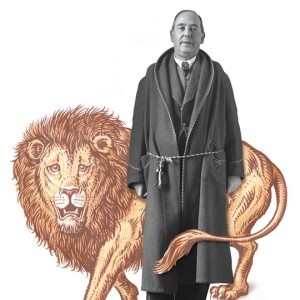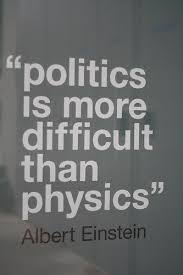Lin Wilder's Blog, page 55
October 26, 2015
Justice and Politics
Ideally the concept of justice is considered to be independent of contextual factors like politics. And the notion of correlating the two feels somewhat odious, or at least repugnant. But the recent Speilberg movie, Bridge of Spies, is a fascinating tale of the oxymoronic twists of our government and its desire to appear just. I don’t recall ever thinking that a movie is perfect but Bridge of Spies, based on a true story about the defense of Russian spy Rudolf Abel by James Donovan, is flawless. Beginning with the screenplay by novice Matt Charman, Tom Hanks’ gripping depiction of Donovan through Speilberg’s impeccable direction, this grabs all senses and does not let go. And the very best part? We leaving thinking about the deceptive simplicity of justice and about others who were caught up by history in similar ways.
Two lawyers separated by two hundred years. Two lawyers who take on the defense of enemies of their country and the calumny that accompanies such profound risk: John Adams and James Donovan. Adams to earn lasting fame as the second President of the United States and Donovan to slip into obscurity. Until Donovan’s book, Strangers on a Bridge; The Case of Colonel Abel and Francis Gary Powers was rediscovered by Matt Charman.
It was the height of the cold war in the mid-fifties in America, paranoia about Russia and their malicious intent against the US never higher when James Donovan was asked to shoulder the burden of defending a Russian spy. Two hundred years earlier, a young John Adams was asked to defend five British soldiers indicted for murder at the Boston Massacre. Adams accepted, according to biographer David McCullough, because he believed that no man in a free country should be denied the right to counsel and a fair trial. As a lawyer, Adams believed his duty clear. Despite “hazarding his hard won reputation and incurring a clamor and popular suspicions and prejudices.'”
Donovan writes in his diary, “We are two dissimilar men drawn close by fate and American law… into a classic case which deserves classic treatment.”
One lawyer won, the other lost. Adams won an acquittal for his clients along with the approbation he feared. Despite an appeal to the Supreme Court, Donovan lost. However and perhaps more crucially, the courageous lawyer argued at Abel’s sentencing in 1957 that there may come a time when possession of one of the most successful Russian spies may warrant an exchange for an American of equal rank, therefore, Abel’s life should be spared. Indeed just such an unlikely occurrence happened and Donovan was asked to broker the exchange of one spy for another: Rudolf Abel for Francis Gary Powers.
John Adams ends his summation of his defense of the British soldiers with these often quoted words:
Facts are stubborn things; and whatever may be our wishes, our inclinations, or the dictates of our passions, they cannot alter the state of facts and evidence:….
The law, in all vicissitudes of government, fluctuations of the passions, or flights of enthusiasm, will preserve a steady undeviating course; it will not bend to the uncertain wishes, imaginations, and wanton tempers of men.
The Coen brothers altered version of the Bridge of Spies screenplay employs surprising levity in the characters of Donovan and Rudolf Abel:
After accepting the defense of the Russian spy, Donovan says, “Everyone will hate me but at least I’ll lose.”
While preparing for their trial, Donovan said to Abel, “You don’t seem alarmed?” To which he responds, “Would it help?
Each of these men understood that in order for justice to exist, it must be separated from politics. And then had the courage to weather the storms of outraged public opinion.
The post Justice and Politics appeared first on Lin Wilder.




















October 19, 2015
Saints as Friends?
She was one of my very first friends as a brand new Catholic Christian. I felt as if I had landed in another universe, one filled with women I did not recognize and could not relate to. But upon reading the reply by St. Teresa of Avila to Christ’s explanation of the imprisonment and near starvation of her friend St. John of the Cross, “Teresa, whom the Lord loves, he also chastises, this is how I treat all my friends.” The acerbic Spanish nun allegedly replied to Jesus, “No wonder you have so few of them.” I laughed heartily then and still do as I consider this mystic; this woman who considered herself ‘too stupid’ to write about her methods of prayer. And only did so because of her vow of obedience. Such a puzzling combination of wit, wisdom and mysticism and yet the connection with St. Teresa of Avila I feel is undeniable and, at times, audible.
Teresa’s three books are considered by all major religions to contain practical advice for all who seek God; as primers for mystics from all traditions. Another Teresa, a German Jewish philosopher and atheist named Edith Stein, upon reading the books of Teresa of Avila in the early part of the last century early would utter in astonishment, “This is truth!” She would become St. Teresa Benedicta of the Cross, Carmelite nun and murdered by the Nazis at Auschwitz in 1942.
Teresa of Avila lived and died 500 years ago in a time we should not be able to relate to unless we think past our assumptions and consider what was happening in the sixteenth century. Wars, political and economic instability, a near constant battle between religious ideologies and scientific discoveries were rocking the accepted realities of the culture. Not all that different a time as our own.
Sounds a little crazy, doesn’t it, considering a saint as a friend? Conceivably even arrogant? Perhaps. But when reciting the Apostle’s Creed and affirming that ‘I believe in the community of saints’ then, maybe not so much. If a community then doesn’t that imply membership? And doesn’t membership convey benefits? Like conversation?
So then you are no longer strangers and aliens, but you are fellow citizens with the saints, and are of God’s household, having been built upon the foundation of the apostles and prophets, Christ Jesus Himself being the corner stone, in whom the whole building, being fitted together is growing into a holy temple in the Lord; in whom you also are being built together into a dwelling of God in the Spirit.
A number of years ago, shortly after moving from the east coast to the west where we now live, we drove to Los Angeles and visited the Cathedral there, The Cathedral of Our Lady of the Angels. The walls of the cathedral are entirely adorned with images of the saints. While walking around the church, I began to think of these saints I was beginning to get to know as real people…realizing that if I meant what I said each time I recited the prayers of the faithful, perhaps a relationship could be developed. Maybe I could get some help.
Despite the fact that I have read St. Teresa’s three books, I understand only a minuscule portion of her narrative and far less of her intimacy with our Lord and of course, fall far short of her way of perfection. I still get frightened when reading some of her observations about the consequence of sin, our own and that of others.
But there are several principles I have learned from her:
Anyone can gain intimacy with our Lord
What is required is desire, persistence and endurance
Constant attention to clean out what she called the ‘crystal castle’ of our soul
Above all else, humility
And a love for St. Paul
Teresa of Avila was named a Doctor of the Church in 1970 and on this five hundredth anniversary year of her death, the Catholic Church is celebrating this whole month in honor of the saint. Strangely this long ago woman at times has felt so real that I can hear her. During the times I have sincerely asked for her guidance, without fail, I hear a response in words that uniquely identify who is speaking. She called them locutions when she spoke with Christ, I’ve never read what the convention is for the conversation from a saint but her words can be clearly identified as her. Replies like, “Did you think this would not require hard work?” or “Consider your hard heartedness,” are instantly recognizable.
The post Saints as Friends? appeared first on Lin Wilder.




















October 12, 2015
CS Lewis and Rahner

Most likely they never met. But the atheist turned Anglican Christian CS Lewis and the Roman Catholic Jesuit theologian Karl Rahner perceived their God in radically similar ways. Both men served as apologists for their faith causing more than a little consternation in the minds of more rule bound colleagues.
“I think all Christians would agree with me if I said that though Christianity seems at the first to be all about morality, all about duties and rules and guilt and virtue, yet it leads you on, out of all that, into something beyond. One has a glimpse of a country where they do not talk of those things, except perhaps a s a joke. Every one there is filled full with what we should call goodness as a mirror is filled with light. But they do not call it goodness. They do not call it anything.They are not thinking of it. They are too busy looking at the source from which it comes. But this is near the stage where the road passes over the rim of our world. No one’s eyes can see very far beyond that: lots of people’s eyes can see further than mine.”
He is one of the people who graced this planet with his life: CS Lewis. This quote from Mere Christianity is one of my very favorites. And I write them because the feel and sound of them is like gentle rain. Soothing, delicious and ever so consoling. Worth spending time and energy pondering what this one-time atheist, writer of such a vast array of fiction and non-fiction books actually meant.
A number of years ago, I was introduced to Karl Rahner. Far less well-known than Lewis, at least in the secular world, Rahner was a theologian, a Jesuit and controversial. His concept of the anonymous Christian was foundational to Vatican ll I learned from my spiritual director who recommended that I read Rahner’s Foundations of the Christian Faith. It’s in this book that Rahner discusses his idea of the anonymous Christian. And also where he expresses his belief that Martin Luther and the rise of Protestantism were necessary, even essential; the Catholic Church had strayed too far from Jesus. The Protestants brought the Catholics back to Christ. Radical, provocative material: the kind that reaps many enemies.
Rahner’s were some of the most exciting ideas I had ever encountered. And despite the Anglicanism of Lewis and the Catholicism of Rahner, it seems to me that these two men are writing of the same God. The one who never gets stuck. Boxed in by the law, doctrine and therefore succumbing to man’s cloudy vision.
Rahner wrote this about his view of the anonymous Christian:
Anonymous Christianity means that a person lives in the grace of God and attains salvation outside of explicitly constituted Christianity — Let us say, a Buddhist monk — who, because he follows his conscience, attains salvation and lives in the grace of God; of him I must say that he is an anonymous Christian; if not, I would have to presuppose that there is a genuine path to salvation that really attains that goal, but that simply has nothing to do with Jesus Christ. But I cannot do that. And so, if I hold if everyone depends upon Jesus Christ for salvation, and if at the same time I hold that many live in the world who have not expressly recognized Jesus Christ, then there remains in my opinion nothing else but to take up this postulate of an anonymous Christianity.
Christ is clear in the Gospels: I am the Way, the Truth and the Life. If that is not clear enough, many times he states that he is the only path to God. But what of those who have never heard of Jesus Christ or who were taught by ignorant and or hypocritical leaders without real knowledge of God?
Rahner uses a phrase that Pope Francis uses; ‘men of good will’ while writing of the anonymous Christian, those outside of church. He saw something different, it is clear. Something bigger.
“I think all Christians would agree with me if I said that though Christianity seems at the first to be all about morality, all about duties and rules and guilt and virtue, yet it leads you on, out of all that, into something beyond. One has a glimpse of a country where they do not talk of those things, except perhaps a s a joke. Every one there is filled full with what we should call goodness as a mirror is filled with light. But they do not call it goodness. They do not call it anything.They are not thinking of it. They are too busy looking at the source from which it comes. But this is near the stage where the road passes over the rim of our world. No one’s eyes can see very far beyond that: lots of people’s eyes can see further than mine.”
I like to think they are now somewhere beyond, together.
The post CS Lewis and Rahner appeared first on Lin Wilder.









October 5, 2015
The Martian and Pope Francis

Despite the admittedly strange correlation, The Martian and Pope Francis, there is a striking parallel between the most unusual movie adapted from novelist Andy Weir’s self- published novel The Martian and the many speeches made by the Pope during his whirlwind tour tour last week. The power of the person. If there is a single theme that seems to symbolize the insistent messages given by the leader of a billion and a half Catholic souls, it is that; the power, or perhaps the dignity of the person. Not said in a political way but deeper than that and radically so. The person shines out for Francis in words and images. Countless times, cameras caught him stopping to bless a quadriplegic child, a paralytic, a small child.
Just so, this unusual movie, Martian, demonstrates the power of an abandoned astronaut played by Matt Damon in capturing the hearts and minds of the citizens of earth during the attempts to send food and finally risk a rescue of this one person. There are numerous scenes of countless people gathered in China, England, Australia as well as the United States praying, hoping or wishing for the successful rescue of this lone man. Multiple languages, races, political systems and nationalities, each focused on this person.
Stalin is reported to have claimed, “A million deaths is a statistic, a single death is a tragedy.” Francis seems to feel the truth of Stalin’s observation at a visceral level. The US Ambassador to the Vatican once asked this Pope how he saw these children and disabled persons among the many thousands clamoring for his attention. “I perceive them,” was his simple reply.
During his forty-five minute speech, Pope Francis used the statement, the ‘human person’ several times and declared in his opening remarks to the United Nations, that every person possesses a ‘right to the environment.’ Intriguing choice of words for a man who is alternatively categorized, to name only a very few of an increasingly long list, as a communist, socialist, anti-capitalist and advocate of liberation theology. Apparently captivating more of the secular media than some of his more conservative Catholic and Christian followers, the remarks made by this most unusual thinker served as a lightning rod to those expecting a more traditional speaker. His widely publicized remarks about gays, atheists and divorced evoke profound disturbance to Catholics and Christians who live comfortably in and among the rules they grew up with.
While listening to the televised presentation of the UN address, I lost count of his use of the word ‘excluded’ after reaching thirty. And was fascinated by the consistencies in his messages. ‘Stop thinking about populations’, ‘start thinking of people’. ‘Stop thinking in phrases like the marginalized’, ‘start thinking of real people’. ‘Real people with hopes and dreams just like your own’.
While praying the Divine Office this morning, I read the words of St Paul in the first letter of the Apostle Paul to Timothy in a new way:
We know that the law is good, provided one uses it in the way the law is supposed to be used—(italics mine) that is with the understanding that it is aimed, not at good men but at the lawless and unruly, the irreligious and the sinful, the wicked and the godless, men who kill their fathers or mothers, murderers, fornicators….
This Italian Argentinian Pope apparently sees past the rules and the boundaries in an appreciation for the dignity of the person in a way not witnessed before. His speeches are composed of simple words and phrases yet leave huge wakes of discord among his followers. Not unlike a former Pharisee Jew turned Christian named Paul.
The post The Martian and Pope Francis appeared first on Lin Wilder.









September 28, 2015
Politics of the Common Good
The word politics has gained an almost entirely negative and pejorative meaning when used by many of us in these days of scandal, corruption and greed. Perhaps there was a time when politics as noun or adjective meant something other than a snipe but not in my lifetime. And so it was with great interest that I read the text of Pope Francis’ address to Congress.
He gets right to it. With artfully chosen language, Francis invokes the ideas of a higher calling, teleology, and goodness without using any of these expressions. More than most, this speaker knows well how incendiary can be a mere word. And he asserts the truth of the meaning of life for each of us, whether retiree or productive worker, whether student or teacher. We are all here in this place and during this time for a reason, specific and unique to each human person. And in his opening remarks the Pontiff assures his audience that his remarks are directed not only to Congress but through them to the citizens of this country, all three hundred and twenty million of us.
“I am most grateful for the invitation to address this ….’in the land of the free and the home of the brave’…I would like to think that the reason for this is that I, too, am a son of this great continent, from which we have all received so much and toward which we share a common responsibility.” And then the pontiff moves on to clarify his meaning. “Each son or daughter of a given country has a mission, a personal and social responsibility.”
In less than four thousand words, the Pope declares that the task of the legislator is a noble one. “Your work,” claims Francis, “is to assist America to ‘grow as a nation.’ ” Specifically, he states that, “You are called to defend and preserve the dignity of your fellow citizens in the tireless and demanding pursuit of the common good, for this is the chief aim of all politics. A political society endures when it seeks, as a vocation, to satisfy common needs by stimulating the growth of all its members, especially those in situations of greater vulnerability or risk. Legislative activity is always based on care for the people.”
Pursuit of the common good as the aim of politics. This is a phrase which is redolent with paradox in a country priding itself on individual freedoms and rights for vast varieties of minorities. A thing like the common good seems unattainable. But the Pontiff repeats the phrase four times in his forty-five minute speech, each time with different verbs: Love of the common good, cooperating generously for the common good and last, service to the common good. The words feel like gentle rain in our strident and polarized culture.
In an apparent acquaintance with the unattainable, even the impossible, Pope Francis invokes Moses as a symbol for the American legislator.
“On the one hand, the patriarch and lawgiver of the people of Israel symbolizes the need of peoples to keep alive their sense of unity by means of just legislation. On the other, the figure of Moses leads us directly to God and thus to the transcendent dignity of the human being. Moses provides us with a good synthesis of your work: you are asked to protect, by means of the law, the image and likeness fashioned by God on every human face.”
One of many phrases that touched me deeply was the Pope’s warning against ‘simplistic reductionism which sees only good or evil.’ So often, our discourse devolves to a primitive level. When people are defined by the weight of labels like “Republican” or “Democrat”, “Socialist” or “Catholic”, we can be blinded and deafened to truths merely because of the label.
“We know that in the attempt to be freed of the enemy without, we can be tempted to feed the enemy within. To imitate the hatred and violence of tyrants and murderers is the best way to take their place. That is something which you, as a people, reject.”
Through his use of simple but universal terms, this Pope speaks to people of faith and people without faith with his appeal to the Golden Rule as a metric for dealing with the Gordian knots of immigration, global poverty, environmental crisis and the death penalty. Beginning and ending his talk with four Americans, Abraham Lincoln, Dorothy Day, Martin Luther King and Thomas Merton, Pope Francis weaves a unique fabric for thought and inspiration.
“A nation can be considered great when it defends liberty as Lincoln did, when it fosters a culture which enables people to “dream” of full rights for all their brothers and sisters, as Martin Luther King sought to do; when it strives for justice and the cause of the oppressed, as Dorothy Day did by her tireless work, the fruit of a faith which becomes dialogue and sows peace in the contemplative style of Thomas Merton.
In these remarks I have sought to present some of the richness of your cultural heritage, of the spirit of the American people. It is my desire that this spirit continue to develop and grow, so that as many young people as possible can inherit and dwell in a land which has inspired so many people to dream.
The post Politics of the Common Good appeared first on Lin Wilder.









CommentsHey Betty- Thank you for taking time to write a note! by Lin WilderI agree I was/ am most impressed with his messages!!!!! I ... by Betty
September 21, 2015
The War Room
Prayer as war: the correlation of combat with happiness has long been one which applies to my life. Therefore, a movie about prayer and war was one I knew I wanted to see when my sister Lee told me about it. Fitting, because the spiritual life is fundamentally a battle.
While in southern California a couple of days ago, I saw that the new movie, War Room, was playing and talked my husband John into going. Despite heavy competition like Johnny Depp’s new movie, we saw War Room Friday night before heading back home on Saturday.
Immediately, I was reminded by a book I read during my first year of marriage: The Power of the Praying Wife. A brand new Christian Catholic and a brand new wife, I felt as if I had moved to a different universe from the one I had inhabited for many years before making these dual vows, those years of making only professional commitments.
There is nothing new in this story. We see a 21st century young couple the instant the movie begins. He a successful drug rep, she a successful real estate broker with one lonely ten year old child. Their home is beautiful. Their clothes are expensive and look it. The little girl, her mother and father each lives alone on a planet with everything each could want within easy reach. But they are joyless.
Enter Miss Clara, brilliantly played by Karen Ambercrombie, prayer warrior extraordinaire. Deftly, Miss Clare teaches her unwitting young real estate agent about the long suppressed secrets to a happy marriage. I say suppressed because it took me far too long to figure out some basics. And my experience is far from unique. When I use the word basics, I mean things like these:
Men and women are wired in completely different ways.
The way men think, talk, listen and make love are almost entirely dissimilar from the way women do.
There are too few places to learn, discuss and explain these differences in useful non-combative language.
In a culture where everyone is equal and aggressively so, differences become politicized and labelled. Especially gender differences.
“Your husband is not your enemy,” Miss Clara exclaims to her young protege. Suddenly this sounds like a new story at least to some of us, like me a couple of years after I married my husband. As a brand new Christian and wife, the realization that there were other Christian women who felt the same as me was a revelation. When Stormie Omartian wrote about the hurt she felt because of words her husband did or didn’t say and her anger at his thoughtlessness and abusiveness, I felt relief. The relief was as tangible as a cool breeze on a hot summer day. And I began to learn a new habit that she taught me. When my feelings were hurt by my husband, slowly I learned to pray for him. When something he said or did angered me, I prayed rather than reacted.
Miss Clara renewed the wisdom learned in the book I read over fifteen years ago. In deceptively simple language, this powerful character demonstrates practical techniques essential in a marriage. A few of my favorites:
“Just because you argue a lot doesn’t mean you fight well.” Or
“Submission is ducking so God can hit your husband.” And
” I see in you a warrior that needs to be awakened.”
The post The War Room appeared first on Lin Wilder.









September 15, 2015
Fires and The Cross
Fires in the west. Back when I lived on the east coast or during the twenty-three years I lived in Houston, hearing about the fires in the west would provoke a momentary ‘ How awful’ but since I was far away, within seconds the horrors of distant folks were replaced by more pressing matters affecting me or my family.
Such is the way of things.
But after thirteen years of living in the high desert, I have come to know the perils of drought, high temperatures and the horrors of wildfires in an up close and very personal way. Last month, when the four firefighters in Washington were overcome and killed by one of the thirteen or fourteen fires burning in remote eastern Washington, sadness and despair seemed to pour from the Governor when he attempted to ‘make a statement’ for the television cameras.
And now we have a conflagration in northern California with the fire ‘season’ not even here yet.
Today is the Triumph of the Cross in the Christian liturgy. Despite now nineteen years as a Christian Catholic, suffering, evil and death remain a mystery. Notwithstanding prayer, study and writing about this subject, I feel no closer to unwrapping the inscrutability of God’s primary message: Pick up your cross to follow me.
Last night, my husband told me the story of a man who has the only remaining house in a burned out neighborhood somewhere in northern California. The man explained that he was begging to God that this house be built with his own two hands be saved. And heard, “Then fight for it.” The unknown man did just that. He bought twenty Home Depot buckets, filled them with water and doused his house over and over, bucket by bucket. All night long. Last year when we had a serious water problem, I filled two of those buckets and carried them down to the plants I was most concerned about. And did so three, maybe four times. I was exhausted by the effort,
The man who somehow found the strength to fight for his home all night long stands amidst the ashes of his former neighborhood to show his house, untouched by the fire.
While praying the Divine Office this morning, I read a partial reading from St. Andrew of Crete, one of the patron saints of the Greek Orthodox Church.
The cross is something great and honorable…because it is both the sign of God’s suffering and trophy of his victory…it was the means by which the devil wounded and death conquered; the barred gates of hell were smashed, and the cross became the one common salvation of the whole world…quoting Christ the saint writes, .Now is the Son of Man glorified…Father, glorify me with the glory I had with you before the world came to be…when I am lifted up, then I will draw all men to myself.
The post Fires and The Cross appeared first on Lin Wilder.









September 8, 2015
Prayer and Writing-Three Parallels
Prayer and writing seem like two completely different activities, perhaps even opposed to one another. Unless we think a little more deeply about what is required of a writer and by one who prays. In order to do so we need to understand that both involve work. And it’s fitting to reflect on work- it is Labor Day, after all. But before we think about the parallels between prayer and writing, I’d like to back up to consider what work means.
My idea of work was once restricted to the days when I worked for an institution. Only after I left that career did I broaden my concept of what it meant to me. Because I’d had a ‘career’ with an impressive title, everything else seemed like playing around, including the writing I did on vacations and weekends. Work meant getting a paycheck. Once I understood that the ‘dream’ of retirement was not one I embraced and that I needed to work, I began to broaden my definition of work to include activities that may not pay or may even cost me, if not my own money then surely, my effort. Within this context of work then the parallels between writing and prayer are these:
Patience
Persistence
Trust
Patience is listed as a virtue because none of us has been provided huge dollops of it. Most of us are exactly like the toddlers we think we’ve grown past when it comes to getting what we really desire, what we firmly believe we require, perhaps even deserve. When whatever we wish for does not appear in hours, days or weeks, we throw virtual tantrums if only verbally. Why, we ask has -fill in the blank- not arrived, happened or changed?
There are times, I have learned, that I simply cannot pray. There are times also that the words don’t come, the writing just does not flow and neither can be forced regardless of my self-imposed deadline. Patience.
Persistence follows right on the heels of persistence. The alliteration is proper. So tempting when the going gets tough is to give up, give in to those voices that clamor in each of our minds, “You cannot do this!’ ‘Whatever makes you think you are good enough?’ The only answer I have is to persist despite the fact that it may be impossible.
Of my three parallels, this last is the riskiest. because by its very nature is so risky: Trust. Why risky?
Most of the time when we pray, we neither hear nor see anyone, we trust that there is someone listening despite all sensory evidence to the contrary. Risking that in the silence, somewhere deep is a person, one who listens. It’s the same when we publish what we write. Most of the time we hear nothing.
Trust is also required for another, equally important reason. Both prayer and writing, by necessity, are solitary and sometimes lonely activities. This is so because each of us is unique, we are told, irreplaceable. Which means that others, whether they be celebrated mystics, priests or top New York Times selling writers, are unable to tell us how to pray or how to write. Trust.
The post Prayer and Writing-Three Parallels appeared first on Lin Wilder.









August 30, 2015
Dog Rescue
Until our dog Shadow appeared outside the fence we were building and timorously decided to take a chance on us, I’d had no experience with rescue dogs, certainly none with dogs from dog rescue shelters. Shadow is known as the dog that everyone wanted in our little valley because he is such a mellow, patient, peaceful dog. When I hear someone say that to me, I sometimes bite back the words, “So why didn’t you take him in when you knew he had no place to go? When you knew he was surviving on road kill?” Fortunately, those words have not left my brain and come out my mouth.
Over the last couple of years however, we’ve spent a good deal of time on the central coast of California on their very dog friendly beaches. Few things fill me with joy as completely as does a dog running free on a beach or to be honest, a dog running up to say hi, or maybe walking, or just showing up. And each of the people I met on the California beaches had gotten their dogs at a shelter. Without exception, this has been the case.
All of my Dobermans had been puppies when we fell in love but after my last red Dobie boy Ally died, I began to search for Doberman rescue sites. And was stunned to learn how many there are. And became so disappointed to read their stories- disappointed in us, the people who supposedly warrant the loyalty and devotion these creatures emanate. “He got too old,” or “We had to get an apartment,” there are thousands of reasons to justify abrogating a commitment and so much easier when the subject of it has no standing in our society.
I discovered Dobies and Little Paw Rescue a few months after Ally died. And I began reading about the red males, the backstories behind them and also the girls. Soon, I began checking several times a week, then daily and then finally counted the dogs there. When I realized there were over one hundred rescued Dobermans and maybe ten to twelve others at Ardis Braun’s rescue ranch in Fillmore, I began to send money.
Over time, my husband John heard enough about the Dobie Rescue Ranch that he suggested we make the long drive down to Fillmore. I honestly thought I was prepared for over a hundred Dobermans- in one place- all needing a home, until I walked into the rescue ranch. And I thought I had at least an intimation of the work it took to run a place committed to providing sanctuary to animals that someone else has abandoned.
I had no clue.
Ardis explains that many of her Dobies arrive when they ‘run out of time’ at another shelter, translated as they will be killed. She refuses no dog whom she learns has ‘run out of time’ at another shelter. The kennels are clean and spacious, there is fresh water and plenty of food. The amount of work required to maintain a place like this staggers me.
Bruno was in one of the last kennels we walked by;  and had been with Ardis only a few days. When he arrived at Ardis’s ranch, he was emaciated but now is beginning to put on weight and very slowly begin to trust. I am hoping that he’ll wait for us when we return in the fall, that maybe Bruno will make us a pack of four again.
and had been with Ardis only a few days. When he arrived at Ardis’s ranch, he was emaciated but now is beginning to put on weight and very slowly begin to trust. I am hoping that he’ll wait for us when we return in the fall, that maybe Bruno will make us a pack of four again.
The post Dog Rescue appeared first on Lin Wilder.









August 24, 2015
Good Afternoon, Fellow Missionaries
 His voice boomed out into the church, waking me up from the torpor resulting from a seven hour drive from Southern California back home that had begun at three yesterday morning. “Good Afternoon, Fellow Missionaries!” We were at the vigil Mass at St. Gall’s Church in Gardnerville, Nevada where a priest we had never seen before was celebrating Mass. A priest called Fr. Tom Hagan, OFSC strode to the front of the church to celebrate Mass, joyfully, loudly and forcefully.
His voice boomed out into the church, waking me up from the torpor resulting from a seven hour drive from Southern California back home that had begun at three yesterday morning. “Good Afternoon, Fellow Missionaries!” We were at the vigil Mass at St. Gall’s Church in Gardnerville, Nevada where a priest we had never seen before was celebrating Mass. A priest called Fr. Tom Hagan, OFSC strode to the front of the church to celebrate Mass, joyfully, loudly and forcefully.
His homily was long, maybe thirty minutes or a few minutes longer. But I was mesmerized. Despite my fatigue, Fr. Hagan woke me up. Today, I cannot get him or his organization out of my mind, out of my heart…he is still waking me up. Father Hagan is a missionary and reminds all of us that we are each called to a mission uniquely our own. Reminds us that if we ignore that quiet voice that challenges us, questions while urging that we take that risk, follow that path which looks impossible; because if we do not, there will be no one to walk it.
Father Tom Hagan was the Chaplain for Princeton University, Chaplain for Life, he explains, comfortably living among some of the wealthiest and best educated of the world; until he took a group of Lafayette college students to Haiti. And that comfortable world blew up when he listened to that quiet voice and decided to do something. Hands Together was founded when Fr. Hagan left his post at Princeton and moved to Port-Au-Prince in 1997.
 Father Tom and children in Cite Soleil image from Hands Together website
Father Tom and children in Cite Soleil image from Hands Together websiteHe comes to churches like St. Gall’s in Gardnerville for several reasons. Primarily, to beg, the word he uses, for help for a three mile ‘city’ in Haiti where he lives along with more than half a million Haitians. The United Nations has called Cite Solei the most dangerous place on earth where anarchy and savage poverty rules and is home to Father Tom Hagan. During his appeal, Fr. Tom’s words are stark, graphic causing us to shift uncomfortably in our pews, our well-fed bodies ill at ease with the fact that fifty per cent of all children born in Father Tom’s ‘parish’ of 500, 000 will die of starvation before the age of five or at hearing about the orange hair and distended bellies that signify severe malnutrition and at his flat statements about prying the dead bodies of infants from the hands of despairing, unbelieving mothers.
Most surprising to me were the main themes of his talk which boiled down to these six points:
Yes, we need your help desperately and if you can, send money
But more than that, please do this for me, for yourselves and for the world,
Resolve today to create a ‘little bit of heaven’ right where you are by
Being a better more loving wife, husband, mother,
And pray as hard as you possibly can asking Jesus, ‘what is it you are asking of me, today?’
Understand that we are all called to be missionaries in the place where each of is, now.
It is astonishing and humbling to consider men like this one. So obviously called for something huge, impossible and hugely dangerous. Last night, on the way home from Mass, I was filled with the image of Fr. Tom’s face when I shook his hand and he took it with a plea, “Please pray for me,” exhaustion, sorrow and pain written all over his face. What a privilege it is to know there are men like him in this sad and broken world; what a privilege it is to want to help.
The post Good Afternoon, Fellow Missionaries appeared first on Lin Wilder.










































